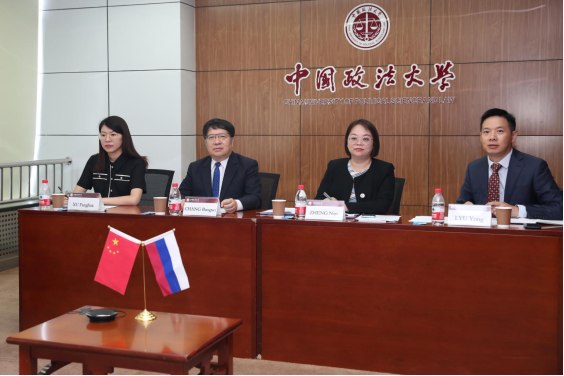On September 6, CUPL Vice President Chang Baoguo was invited to exchange views with St. Petersburg State University in Russia on the management and development of higher education between China and Russia via online meeting. The meeting was also attended by Babushkina Valeriya, Acting Vice President of Foreign Affairs of St. Petersburg State University, Russia, Sergey Belov, Dean of the Law School, and Vyacheslav Suyazov, Director of the Education Law Center of the Law School, as well as Zheng Nan, Deputy Director of the Finance Office of CUPL, and Lyu Yong, Deputy Director of the Office of International Cooperation and Exchange.

During the talks, Vice President Chang reviewed the practical and close cooperation between the two universities in terms of exchange visits, talent cultivation, academic research, and other aspects since the establishment of cooperation relationship in 2005. In particular, he mentioned the high-level foreign-related legal talent training project launched by the two sides in 2020 through the "Promotion of International Cooperation Training Project with Russia, Ukraine and Belarus" sponsored by the Chinese government. He said that, the constructive and conducive dialogue between the two sides on topics of common interests would surely be of great significance to promoting exchanges and mutual learning between the higher education systems of China and Russia. He also sent an invitation to St. Petersburg State University to attend a series of academic activities to celebrate the 70th anniversary of CUPL. Babushkina Valeria affirmed the long-term friendly and cooperative relations between the two sides and thanked CUPL for its strong support for promoting exchanges and cooperation between the two sides. Sergei Belov hoped that the two universities would take this opportunity to carry out joint academic researches on topics of common interests.
During the talks, the two sides also held in-depth exchanges on higher education in China and Russia, especially on the management system, financial allocation, fund-raising and fund-use, infrastructure construction and maintenance, and regional differences.

